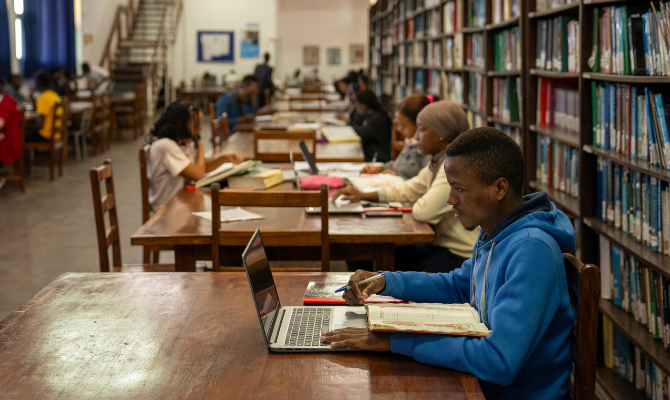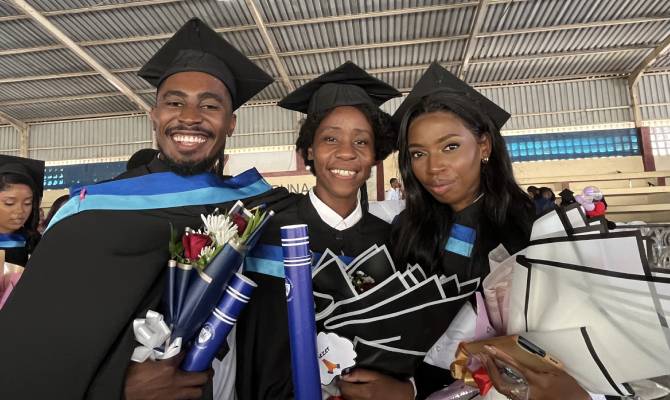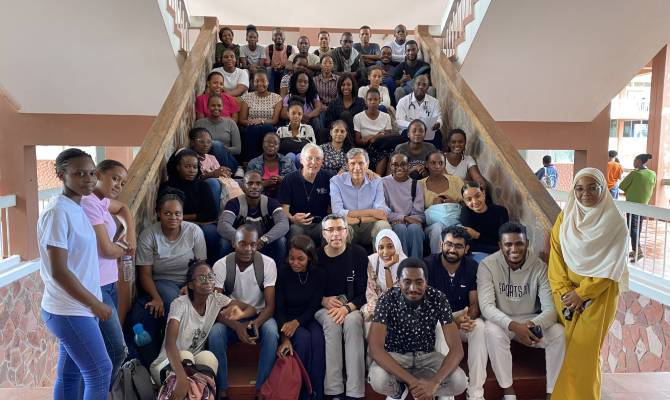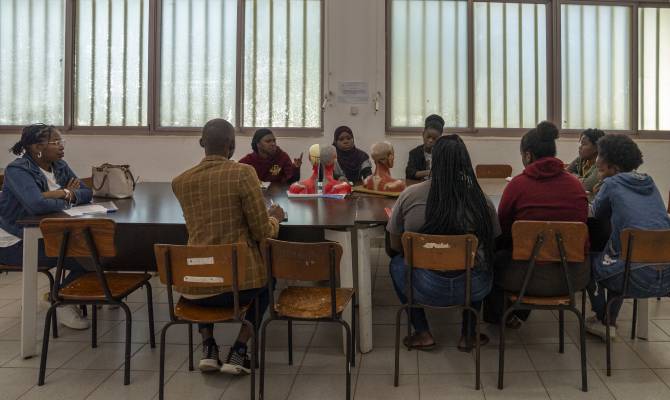In one of Mozambique’s youngest and most dynamic cities—Beira—the Catholic University (Universidade Católica de Moçambique, UCM) isn’t just an institution for higher learning: it’s a vibrant laboratory of ideas, exchange, and growth which is courageously and pragmatically shaping the future of health. Here, a new generation of doctors and nurses is being educated and trained, alongside the dedicated work of Doctors with Africa CUAMM.
We have heard about it from the testemony of Dr. Francesco Segala, from Turin, and Federica Penco, nurse from Genoa—who have been working hand-in-hand with the university since November and April respectively, thanks to a CUAMM-supported project.
“It’s a formative experience even for me, despite being here to teach,” Francesco shares.
“Our office is inside the university. We live the dynamics of a centre of excellence from within—one that a great many Catholic universities in Africa and the Lusophone world look to as a point of reference.”
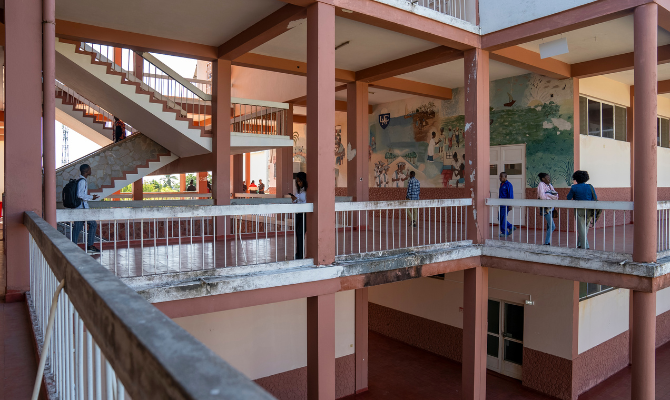
UCM’s pedagogical method is innovative: designed around the so-called “based learning” approach, it places students at the centre of the educational process. Small tutor‑led groups guide them step by step.
For Federica—working in an academic setting for the first time—the welcome has been warm:
“My colleagues and the students involved me right away. Despite my imperfect Portuguese, they correct me, support me, listen to me—and they ask me to contribute my own experience.”
One of UCM’s most pioneering initiatives is the Saúde Familiar programme—launched over twenty years ago: from the very first year, each student is assigned to five or six families in the bairro of Chipangara, located right across the campus. These are communities often lacking electricity or running water, exposed to infectious diseases and severe health vulnerabilities. Over a four-year period, students follow these family units: they visit them, record health issues, and accompany them—if needed—to local health centres.
“It’s a powerful message to send students into the most disadvantaged neighbourhoods to knock on doors and ask, ‘How are you? What’s going on here? How are your children?’ ” Francesco explains.
“I’ve never seen anything like this at a Western university. It’s a lesson in medicine and humanity rolled into one.”
Starting this September—and thanks to CUAMM’s support—the project will be enriched with a new research activity: a prospective cohort study to monitor key poverty-related infectious diseases—HIV, malaria, tuberculosis, schistosomiasis, helminthiasis. The goal: produce an up-to-date snapshot and design targeted future interventions. But the transformation is already underway.
“Being part of Mozambique’s nursing revolution is both a beautiful and necessary challenge,” Federica admits.
“UCM graduated its first nursing cohort only in 2009, but today the profession is gaining recognition and autonomy. Here, a new generation of care professionals is being built. And step by step, real change is happening.”

